NEW YORK -- The ring of steel is expanding. New York City Police Department Commissioner Raymond W. Kelly announced a "major project" at a budget hearing on Tuesday to install license plate reader cameras "in every lane of traffic on all of the bridges and tunnels that serve as entrances and exits to Manhattan."
Soon, no one will be able to drive onto or off of the island without potentially being recorded.
Currently, Kelly said, the NYPD has "complete" coverage on the Manhattan and Brooklyn Bridges and the Battery and Holland Tunnels. License plate readers will be commissioned for additional bridges by this summer. The devices can quickly scan license plate numbers and submit the time and place they were captured to a database.
Kelly also said the department has mounted a high-resolution camera on an NYPD helicopter and given it "sophisticated down-link technology to provide real-time, high-quality video of incidents as they unfold." The commissioner has expressed interest in flying unmanned drones to watch over demonstrations as well.
Kelly did not state the cost of the license plate reader program. But along with data from other major NYPD electronic surveillance initiatives -- the Argus cameras mounted on streets in neighborhoods and the Lower Manhattan Security Initiative that integrates private cameras from banks and other institutions -- the license plate data will be fed into a $30-40 million comprehensive dashboard produced by Microsoft called the Domain Awareness System.
While the new measures could arguably come in handy if the city ever faces another terrorist attack, privacy advocates are raising questions about what sort of safeguards the NYPD uses to protect the data it collects.
Last month, The New York Times reported that the police department had built a database of 16 million license plates.
Department policy states that license plate data can be stored for at least five years. The department did not respond to a request from the Huffington Post on the civil liberties protections in place.
As license plate readers have exploded as a technology used by police (and repo men), privacy advocates are increasingly concerned that they represent a surveillance dragnet. Police can easily find out whether an ordinary citizen has visited a strip club, a school or a mosque. Civil libertarians argue that this represents a quantum leap in intrusiveness from the ordinary cop on the beat taking down a plate number.
The New York Civil Liberties Union said it was concerned by Kelly's announcement. The organization has sued both the NYPD and the Department of Homeland Security for more details on cameras in Lower Manhattan, to little success so far.
“License plate readers have the potential to track, record and store information forever on every single motorist on our streets, regardless of whether drivers are actually suspected of any crimes or not,” NYCLU Executive Director Donna Lieberman said in a statement. “We need legal protections to limit the collection, retention and sharing of our travel information.”
Original Article
Source: huffingtonpost.com
Author: Matt Sledge
Soon, no one will be able to drive onto or off of the island without potentially being recorded.
Currently, Kelly said, the NYPD has "complete" coverage on the Manhattan and Brooklyn Bridges and the Battery and Holland Tunnels. License plate readers will be commissioned for additional bridges by this summer. The devices can quickly scan license plate numbers and submit the time and place they were captured to a database.
Kelly also said the department has mounted a high-resolution camera on an NYPD helicopter and given it "sophisticated down-link technology to provide real-time, high-quality video of incidents as they unfold." The commissioner has expressed interest in flying unmanned drones to watch over demonstrations as well.
Kelly did not state the cost of the license plate reader program. But along with data from other major NYPD electronic surveillance initiatives -- the Argus cameras mounted on streets in neighborhoods and the Lower Manhattan Security Initiative that integrates private cameras from banks and other institutions -- the license plate data will be fed into a $30-40 million comprehensive dashboard produced by Microsoft called the Domain Awareness System.
While the new measures could arguably come in handy if the city ever faces another terrorist attack, privacy advocates are raising questions about what sort of safeguards the NYPD uses to protect the data it collects.
Last month, The New York Times reported that the police department had built a database of 16 million license plates.
Department policy states that license plate data can be stored for at least five years. The department did not respond to a request from the Huffington Post on the civil liberties protections in place.
As license plate readers have exploded as a technology used by police (and repo men), privacy advocates are increasingly concerned that they represent a surveillance dragnet. Police can easily find out whether an ordinary citizen has visited a strip club, a school or a mosque. Civil libertarians argue that this represents a quantum leap in intrusiveness from the ordinary cop on the beat taking down a plate number.
The New York Civil Liberties Union said it was concerned by Kelly's announcement. The organization has sued both the NYPD and the Department of Homeland Security for more details on cameras in Lower Manhattan, to little success so far.
“License plate readers have the potential to track, record and store information forever on every single motorist on our streets, regardless of whether drivers are actually suspected of any crimes or not,” NYCLU Executive Director Donna Lieberman said in a statement. “We need legal protections to limit the collection, retention and sharing of our travel information.”
Original Article
Source: huffingtonpost.com
Author: Matt Sledge

No comments:
Post a Comment